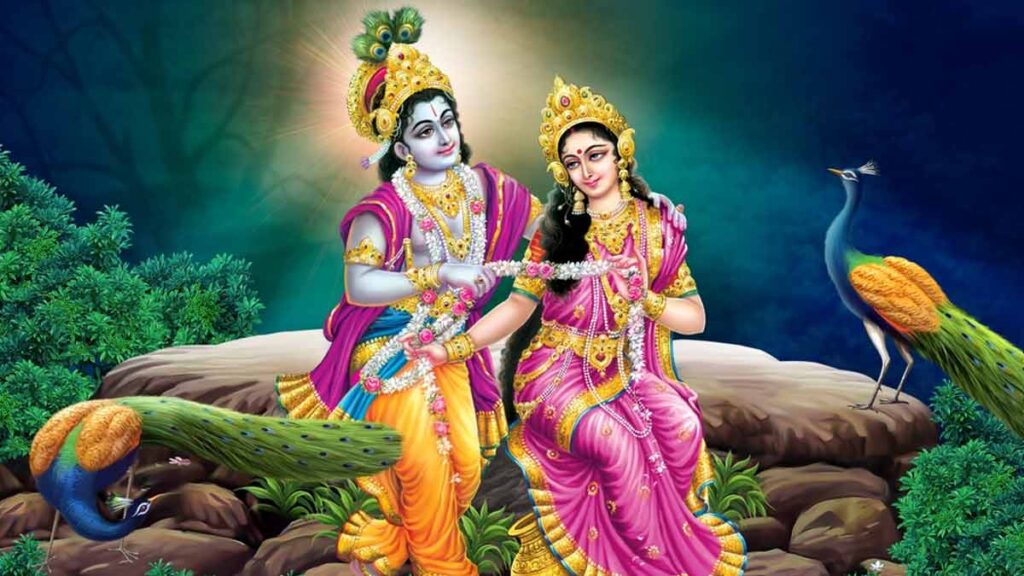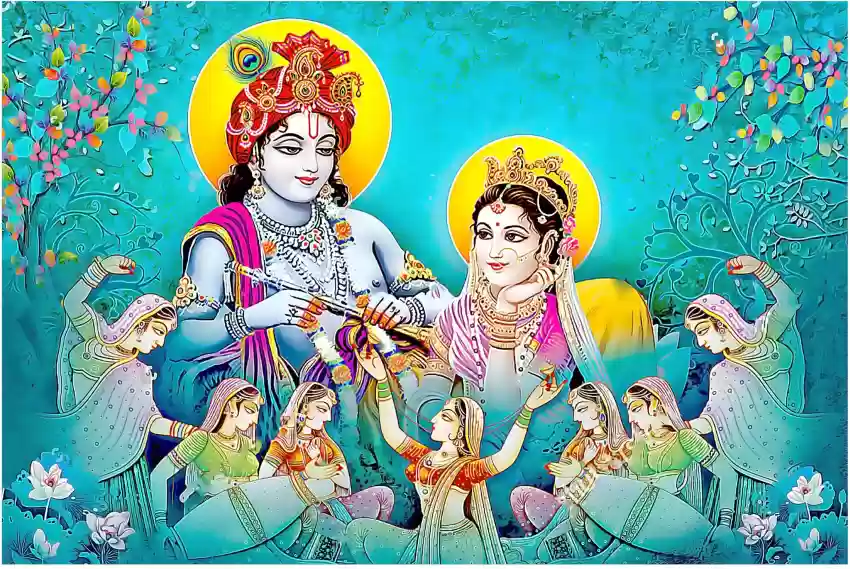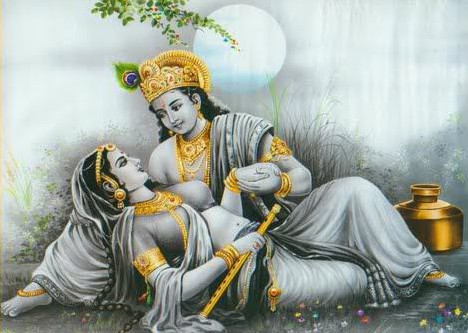In the pantheon of Hindu deities, Lord Visnu and Radha hold a significant place, representing the epitome of divine love and devotion. The worship of Visnu and Radha has been an integral part of Hindu culture for centuries, captivating the hearts of millions with the eternal love they symbolize. This blog explores the essence of Visnu and Radha worship and the profound meaning it holds for devotees.
Visnu, known as the preserver and sustainer of the universe, is one of the Trimurti, alongside Brahma (the creator) and Shiva (the destroyer). He is often depicted as a blue-skinned deity, adorned with multiple arms, and holding various divine attributes such as the conch shell, lotus flower, and discus. Lord Visnu is considered the embodiment of mercy, compassion, and protection, providing solace and guidance to his devotees.

On the other hand, Radha is the supreme goddess of love and devotion, often portrayed as the beloved consort of Lord Krishna. Radha’s love for Krishna is believed to be unparalleled and serves as an inspiration for all devotees aspiring to experience unconditional love and surrender to the divine. While Radha is not widely worshiped independently, her significance in Krishna devotion cannot be undermined. Their love represents the unbreakable bond between the devotee and the divine, transcending time and space.
Visnu and Radha worship is characterized by various rituals and practices. Devotees engage in bhakti (devotional) practices such as chanting mantras, singing hymns, and reciting prayers that extol the qualities of these divine beings. One of the most powerful forms of worship is the recitation of Visnu Sahasranama, a sacred hymn comprising a thousand names of Lord Visnu. This practice not only helps devotees connect with the divine but also purifies the mind and brings inner peace.
You can read our another post on Influence of Sri Chaitanya Bhakti in Odisha

Another popular practice in Visnu and Radha worship is the performance of temple rituals, known as seva. Devotees offer puja (prayer) and bhoga (offerings) to the deities, including flowers, fruits, incense, and lamps. These rituals are performed with utmost devotion, aiming to please the divine couple and seek their blessings. It is believed that participating in these rituals with a sincere heart fosters a deeper connection with Visnu and Radha.
Moreover, the celebration of festivals such as Janmashtami and Radha Ashtami are dedicated to commemorating the divine love between Lord Krishna and Radha. These festivals witness grand processions, devotional singing and dancing, and storytelling sessions that rekindle the spirit of devotion and inspire devotees to emulate the divine love shared by Visnu and Radha.
The worship of Visnu and Radha goes beyond the traditional boundaries of religion. It is a spiritual path that encourages individuals to cultivate love, compassion, and devotion in their lives. By emulating their qualities, devotees aspire to attain liberation from the cycle of birth and death and reunite with the divine.

Write A FAQ For Visnu and Radha Worship: Honoring Divine Love and Devotion
What is the significance of Visnu and Radha worship in Hinduism?
Visnu and Radha worship holds immense significance in Hinduism as it symbolizes the divine love and devotion between Lord Visnu (the preserver and sustainer of the universe) and Radha (a beloved devotee of Visnu). It exemplifies the idea of a pure and selfless bond between a devotee and the divine, serving as a pathway to spiritual enlightenment and liberation.
How is Visnu and Radha worship practiced?
Visnu and Radha worship can be practiced in various ways, including performing rituals, chanting mantras, offering prayers, and engaging in meditation. Devotees may visit temples dedicated to Visnu and Radha, where they can participate in religious ceremonies and offer flowers, fruits, and other offerings to express their devotion.
Can Visnu and Radha be worshiped individually?
While the worship of Visnu and Radha is often intertwined, they can be worshiped individually as well. Visnu is revered as the supreme deity in Hinduism and can be worshiped independently, especially in temples dedicated to him. Similarly, Radha is considered an embodiment of divine love and can be revered and worshiped individually as the epitome of devotion.
Is Visnu and Radha worship exclusive to certain sects of Hinduism?
No, Visnu and Radha worship is not limited to any specific sect of Hinduism. It is widely practiced across various denominations and traditions, including Vaishnavism and Bhakti Yoga. Devotees from different regions and backgrounds engage in Visnu and Radha worship, emphasizing the universal appeal and acceptance of this devotional practice.
What are the benefits of practicing Visnu and Radha worship?
Practicing Visnu and Radha worship brings several benefits to individuals. It fosters a deep sense of devotion, love, and surrender towards the divine, leading to spiritual growth and enlightenment. It offers solace, peace, and comfort amidst life’s challenges and instills a virtuous and ethical way of living. Moreover, Visnu and Radha worship nurtures feelings of unity, compassion, and interconnectedness, promoting harmony and love within oneself and towards others.
Conclusion
In conclusion, Visnu and Radha worship stands as an embodiment of divine love and devotion in Hinduism. Their eternal love story serves as a guiding light for devotees, reminding them of the transformative power of love and the possibilities it holds within the realm of spirituality. Visnu and Radha worship inspire individuals to walk the path of devotion, surrendering themselves selflessly to the divine, and experiencing the boundless love that exists between the devotee and the deity.
